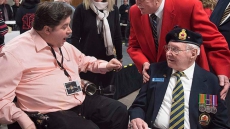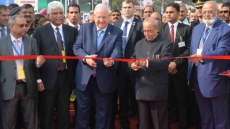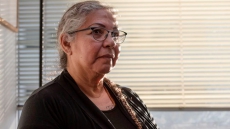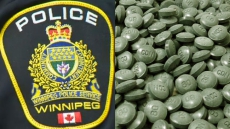TORONTO — A woman's long quest to be recognized as an Indian goes before Ontario's top court Tuesday in a constitutional challenge that asserts she and others like her are victims of discrimination.
At issue is a federal government policy that a father whose name does not appear on his child's birth certificate is not an Indian. This includes cases of rape or incest, or where the man simply disavows his child.
The result is that the child can lose several rights, such as being able to live on a reserve and access free post-secondary education. Tens of thousands of people are believed to be in this situation.
For its part, Ottawa argues the assumption is non-discriminatory and is part of a reasonable approach to protect bands from an influx of non-status Indians and to limit the government's financial exposure.
The plaintiff in the case, Lynn Gehl, 54, of Peterborough, Ont., has been trying since 1994 to get registered as a status Indian. Her status entitlement depends on her father because he married a non-Indian, but no one now knows who his father was.
As a result, the government assumes her grandfather was non-Indian, effectively depriving his granddaughter of status.
"It's young mothers who are hurt mostly by this policy," Gehl, who identifies as an Algonquin Anishinaabe, said in an interview Monday. "We all know that it's going to be mothers in the situation, not fathers."
After unsuccessful attempts at registration, Gehl took her fight to the courts in 2002, arguing 1985 provisions of the Indian Act that determine how status is passed to children are unconstitutional.
Essentially, Gehl argues Section 6 of the act discriminates against people whose parents weren't married or who don't know who their fathers or grandfathers were.
"What's really sad about the situation is prior to 1985, before the Indian Act was amended to bring it into line with the charter, there were provisions to protect children like myself and mothers," Gehl said.
The federal government counters that the act treats everyone the same. It maintains Gehl's ineligibility to register as an Indian has nothing to do with gender, but with the fact that the identity of her father's father is unknown, which is not a constitutional issue.
The government also argues many children know who their fathers are — even if they weren't married to their mothers — and says it is flexible when it comes to proof of paternity, saying it might also accept DNA tests or sworn declarations.
The Indian Act mandates that registration only be granted to individuals with at least two status Indian grandparents, the government argues, and assuming Indian paternity in cases where the status is unknown would undermine the legislation by, among other things, encouraging children to withhold the names of fathers they know aren't Indians.
In June last year, Ontario Superior Court Justice Elizabeth Stewart sided with the government.
"The impugned provisions of the Indian Act treat all applicants the same," Stewart said. "Gehl's predicament therefore arises from the unique circumstances of her life, particularly the unknowable identity of her paternal grandfather."
Gehl, who has a doctorate in indigenous studies, said the judge's view was too narrow.
"Canada has spent almost $1 million defending a discriminatory policy and law," she said.





